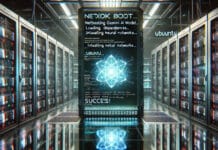In today’s fast-paced digital world, DevOps is crucial for software development and IT operations. By fostering collaboration and automating processes, it aims to deliver high-quality software quickly and reliably. Let’s explore the latest trends in DevOps, essential tools, required skills, career opportunities, and the future of this transformative practice.
DevOps is continually evolving, with new trends and technologies reshaping how organisations approach software development and IT operations. Understanding these trends is vital for staying ahead in the competitive tech landscape.
The rise of AI and ML in DevOps
Artificial intelligence (AI) and machine learning (ML) are revolutionising DevOps by automating repetitive tasks, predicting system failures, and optimising resource usage. These technologies enhance the efficiency and reliability of DevOps pipelines.
AI-powered automation: AI and ML can automate various aspects of DevOps, such as code testing, integration, and deployment. AI algorithms analyse code changes to identify potential issues, predict failures, and recommend fixes, significantly reducing the time and effort required for manual testing and debugging.
Predictive analytics: ML models can analyse historical data to predict system performance and identify potential bottlenecks before they become critical issues. This proactive approach helps in maintaining optimal performance and reducing downtime.
Resource optimisation: AI-driven tools can optimise resource allocation by predicting demand and scaling resources accordingly. This ensures efficient use of infrastructure, reducing costs and improving performance.
Real-world examples: AI and ML are transforming DevOps by enabling predictive maintenance, anomaly detection, and intelligent automation. For instance, Netflix uses ML models to predict potential system failures and optimise resource allocation in real time, ensuring seamless streaming experiences for millions of users.
Two good AI/ML tools in DevOps are:
- Splunk: Utilises ML algorithms to analyse log data, identify patterns, and predict issues before they impact users.
- DataRobot: Provides automated machine learning tools that help DevOps teams build and deploy predictive models to enhance operational efficiency.
DevOps and the Internet of Things (IoT)
As connected devices become more prevalent, DevOps practices are being adapted to manage IoT ecosystems. The integration of IoT with DevOps presents unique challenges and opportunities.
Continuous integration and deployment for IoT: IoT devices require frequent updates to ensure security and functionality. DevOps practices enable continuous integration (CI) and continuous deployment (CD) for IoT, ensuring that updates are delivered efficiently across a wide range of devices.
Managing diverse ecosystems: IoT ecosystems consist of various devices with different capabilities and requirements. DevOps practices help manage these diverse ecosystems by standardising processes and ensuring consistent quality across all devices.
Security and compliance: IoT devices are often vulnerable to security threats. DevSecOps practices ensure that security is integrated into every stage of the development process, from code inception to deployment. Automated security testing and compliance checks help in identifying and mitigating vulnerabilities early.
Here are a couple of case studies with respect to DevOps and IoT.
- GE Predix: GE uses DevOps practices to manage its Predix platform, which supports IoT applications in industrial settings. By leveraging CI/CD pipelines and automated testing, GE ensures that its IoT devices receive timely updates and maintain high reliability.
- Bosch IoT suite: Bosch employs DevOps methodologies to handle its diverse range of IoT devices, from smart home products to industrial sensors. Continuous integration and automated deployment pipelines help Bosch manage updates across a vast array of devices efficiently.
- Challenges and solutions: Managing DevOps for IoT ecosystems involves addressing challenges like device heterogeneity, network reliability, and security. Implementing edge computing can mitigate network latency issues, while adopting robust security practices like device authentication and encrypted communication ensures data integrity and privacy.
Essential DevOps tools
In the realm of DevOps, the right tools are essential for automating processes, enhancing collaboration, and ensuring the efficient delivery of software.
Kubernetes: A container orchestration platform
Kubernetes has become the go-to tool for container orchestration, allowing teams to manage, scale, and deploy containerised applications efficiently. Its robust ecosystem and widespread adoption make it a cornerstone of modern DevOps practices. Google Cloud Platform (GCP) uses Kubernetes to manage its containerised applications, providing scalability and reliability. Kubernetes’ self-healing capabilities ensure that applications remain available even if individual containers fail.
Scalability and flexibility: Kubernetes automates the deployment, scaling, and management of containerised applications. Its ability to handle complex, multi-container applications ensures that systems can scale seamlessly in response to demand.
Self-healing capabilities: Kubernetes has built-in self-healing mechanisms, such as automatic restarts, rescheduling, and replication of failed containers. This ensures high availability and reliability of applications.
Extensive ecosystem: The Kubernetes ecosystem includes a wide range of tools and extensions, such as Helm for package management, Prometheus for monitoring, and Istio for service mesh management. These tools enhance the functionality and usability of Kubernetes in various environments.
Git: The popular DevOps tool
Git is an essential version control system used in DevOps for tracking changes in source code during software development. Its distributed nature and powerful branching capabilities facilitate collaboration and continuous integration. Open source projects like the Linux kernel rely on Git for version control. Developers from around the world contribute to the project, leveraging Git’s branching and merging capabilities to collaborate effectively.
Distributed version control: Git allows multiple developers to work on the same project simultaneously without interfering with each other’s work. Its branching and merging capabilities enable parallel development and easy integration of code changes.
Collaboration and workflow: Tools like GitHub, GitLab, and Bitbucket provide collaborative features such as pull requests, code reviews, and issue tracking. These features enhance team collaboration and streamline the development workflow.
Continuous integration: Git integrates seamlessly with CI tools like Jenkins, CircleCI, and Travis CI. Automated build and test processes can be triggered by code changes, ensuring that new code is tested and integrated continuously.
Building DevOps pipelines with open source tools
Open source tools play a pivotal role in building and managing DevOps pipelines. These tools help automate testing, deployment, and monitoring, ensuring that software is delivered rapidly and reliably.
Jenkins: Jenkins is an open source automation server that facilitates CI/CD. Its extensive plugin ecosystem allows integration with various tools and services, making it highly adaptable to different workflows. Companies like Capital One use Jenkins to automate their CI/CD pipelines, ensuring that code changes are tested and deployed rapidly. Jenkins’ plugin ecosystem allows integration with various tools and services, enhancing its functionality.
Ansible: Ansible is an open source automation tool for configuration management, application deployment, and task automation. Its simple, agentless architecture and human-readable YAML configuration files make it easy to use and integrate into DevOps pipelines.
Docker: Docker is a platform for developing, shipping, and running applications in containers. Containers provide a consistent environment across different stages of the development lifecycle, from development to production, ensuring that applications run reliably in any environment.
DevSecOps: Integrating security into DevOps
Incorporating security into every stage of the DevOps pipeline is critical. DevSecOps emphasises the importance of continuous security monitoring, vulnerability management, and compliance, ensuring that security is an integral part of the development process.
The security pipeline involves integrating security practices into the CI/CD pipeline, ensuring that security checks are performed continuously and automatically.
Automated security testing: Tools like OWASP ZAP, Snyk, and Clair automate security testing, identifying vulnerabilities in code, dependencies, and container images. Automated testing helps detect and fix security issues early in the development process.
- OWASP ZAP: An open source security testing tool that automates vulnerability scanning for web applications. OWASP ZAP integrates with CI/CD pipelines, ensuring that security testing is performed continuously throughout the development lifecycle.
- Snyk: Focuses on identifying and fixing vulnerabilities in open source dependencies. By integrating with Git repositories and CI/CD tools, Snyk provides real-time security feedback and automated remediation.
Continuous monitoring: Security monitoring tools like Nagios and Snort continuously monitor applications and infrastructure for security threats. They provide real-time alerts and detailed reports, enabling quick response to potential security incidents.
- Nagios: Monitors infrastructure and applications for performance and security issues. Nagios’ customisable alerts and dashboards provide real-time visibility into system health, enabling quick response to potential threats.
- Snort: This is an open source intrusion detection system (IDS) that analyses network traffic for suspicious activity. Snort’s rule-based detection helps identify and mitigate security threats in real time.
Compliance and auditing: DevSecOps practices include automated compliance checks and auditing to ensure that applications meet regulatory and security standards. Tools like OpenSCAP and AuditD help in maintaining compliance and generating audit reports.
Skills needed, certifications and career opportunities in DevOps
The demand for skilled DevOps professionals is on the rise, and acquiring the right skills and certifications can open up numerous career opportunities. DevOps professionals need a blend of technical and soft skills.
Scripting and automation: Proficiency in scripting languages like Python, Bash, and PowerShell is essential for automating tasks and managing infrastructure.
Cloud platforms: Knowledge of cloud platforms like AWS, Azure, and Google Cloud is crucial for deploying and managing applications in the cloud.
CI/CD pipelines: Understanding CI/CD processes and tools is vital for automating software delivery and ensuring continuous integration and deployment.
Collaboration and communication: Strong communication skills are necessary for collaborating with cross-functional teams and stakeholders.
Certifications validate expertise and enhance career prospects. Some of the most recognised DevOps certifications include:
- AWS certified DevOps engineer
- Certified Kubernetes administrator (CKA)
- Google professional DevOps engineer
- Docker certified associate (DCA)
Continuous learning through online courses, workshops, and hands-on experience is crucial for staying updated with the latest trends and technologies.
The demand for DevOps professionals is growing, with roles such as:
- DevOps engineer: Focuses on building and maintaining CI/CD pipelines, automating infrastructure, and ensuring seamless integration of code changes.
- Site reliability engineer (SRE): Responsible for monitoring system performance, implementing reliability improvements, and responding to incidents. SREs use automation and best practices to ensure high availability and scalability.
- Release manager: Manages the release process, coordinating between development and operations teams to ensure smooth and timely deployments.
- DevOps evangelist: Promotes DevOps culture and practices within an organisation, driving adoption and continuous improvement.
- DevSecOps engineer: Integrates security practices into the DevOps pipeline, ensuring that security is a continuous and automated part of the development process.
- Cloud engineer: Specialises in deploying and managing applications in cloud environments, leveraging DevOps practices to optimise performance and cost-efficiency.
Organisations across various industries are seeking skilled DevOps practitioners to streamline their operations and enhance productivity.
The future of DevOps
The future of DevOps is shaped by emerging trends and technologies, offering exciting advancements and opportunities.
AI and ML integration: AI and ML will continue to enhance DevOps practices by automating tasks, predicting issues, and optimising resource usage.
DevSecOps: Security will become an even more integral part of the DevOps process, with increased emphasis on continuous security monitoring and automated compliance checks.
Microservices and serverless architectures: The adoption of microservices and serverless architectures will drive the need for new DevOps tools and practices to manage complex, distributed systems.
DevOps will continue to play a crucial role in digital transformation efforts, helping organisations become more agile, responsive, and customer-focused. The adoption of cloud-native technologies and practices will drive innovation and competitive advantage.
DevOps has fundamentally transformed the way software is developed and delivered. By embracing the latest trends, leveraging essential tools, and continuously developing relevant skills, professionals can ensure they remain at the forefront of this evolving field.












































































